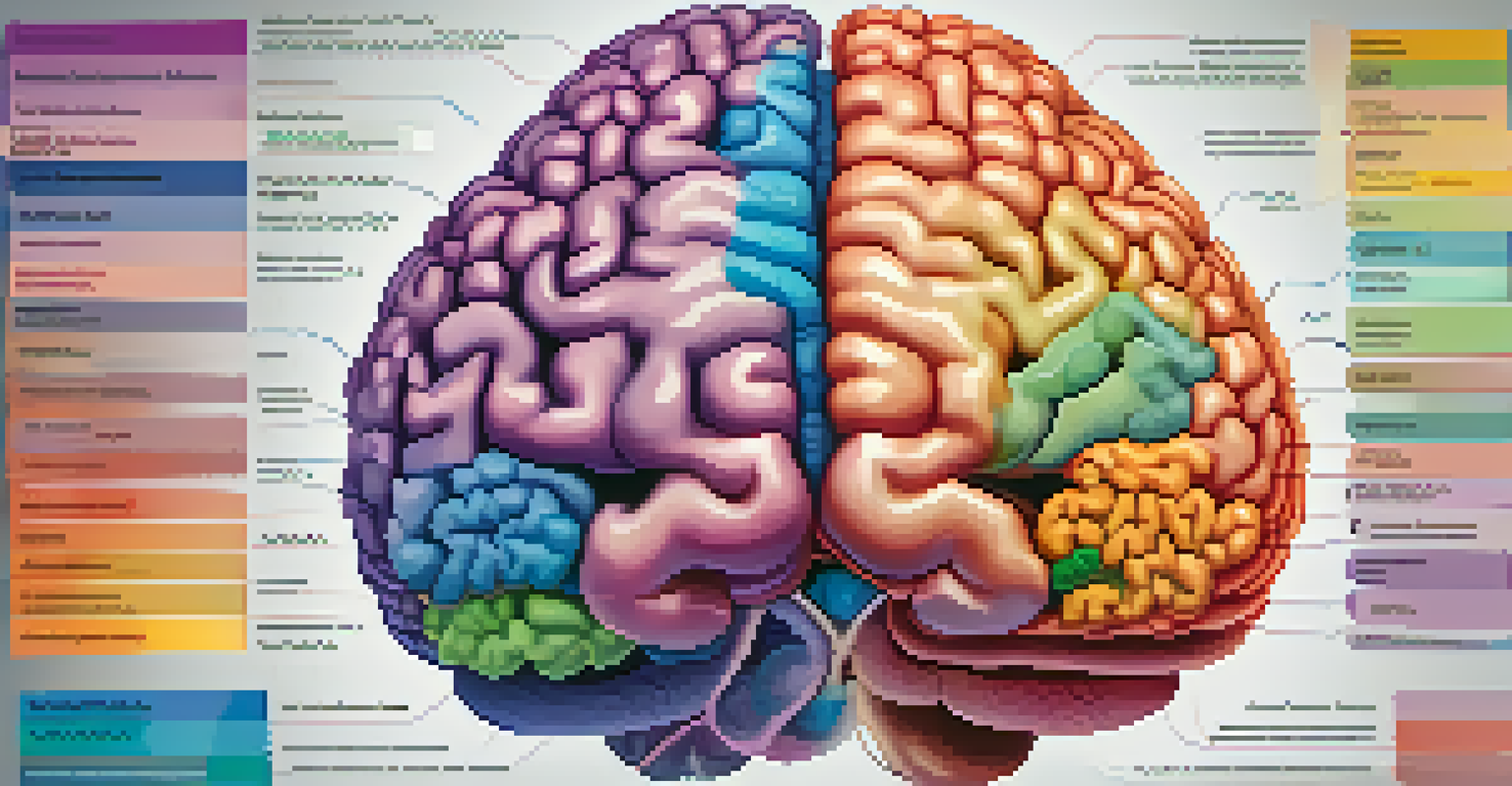The Biological Basis of Addiction: What You Should Know

What Is Addiction? A Brief Overview
Addiction is a complex condition, a brain disorder that is manifested by compulsive substance use despite harmful consequences. It affects various aspects of a person's life, including their physical health, relationships, and mental well-being. Understanding addiction as a disorder rather than a moral failing is crucial for empathy and effective treatment.
Addiction is not a choice; it is a complex disease that affects brain function and behavior.
At its core, addiction is characterized by a lack of control over the use of a substance or behavior, leading to a cycle of craving and use. This cycle can be driven by various biological, psychological, and environmental factors. Recognizing the multifaceted nature of addiction helps in approaching it with a comprehensive treatment plan.
Addiction doesn't only involve the actual substance but also the brain's reward systems that reinforce the behavior. This understanding sets the stage for exploring the biological mechanisms that contribute to addiction.
The Brain's Reward System and Addiction
The brain's reward system is primarily responsible for the feelings of pleasure that come from certain behaviors, including eating, socializing, and using drugs. When we engage in activities that are pleasurable, our brain releases dopamine, a neurotransmitter that signals enjoyment. However, addictive substances can hijack this system, causing an overwhelming release of dopamine.

This artificial spike in dopamine can lead to the reinforcement of drug-seeking behavior. Over time, as the brain becomes accustomed to these high levels of dopamine, normal activities that once brought joy may no longer have the same effect. This phenomenon, known as 'tolerance,' can drive individuals to seek more of the substance to achieve the same pleasure.
Addiction is a Brain Disorder
Understanding addiction as a brain disorder rather than a moral failing is crucial for empathy and effective treatment.
Understanding how the reward system operates is crucial for grasping the biological basis of addiction. It illustrates why individuals may prioritize substance use over other important aspects of their lives, leading to the cycle of addiction.
Genetic Factors in Addiction Vulnerability
Research has shown that genetics play a significant role in an individual's susceptibility to addiction. It’s estimated that genetic factors account for about 40-60% of the risk for addiction. If you have a family history of addiction, you may be more vulnerable due to inherited traits that influence how your body and brain respond to substances.
The greatest weapon against stress is our ability to choose one thought over another.
Certain genes can affect how drugs are metabolized, which in turn can influence the intensity of their effects. For example, a person with a genetic predisposition may experience heightened pleasure from a substance, making it more likely for them to continue using it. This genetic component underscores the importance of personalized approaches in addiction treatment.
While genetics can increase risk, they do not determine fate. Environmental factors, personal experiences, and social influences also play crucial roles in the development of addiction.
The Role of Neurotransmitters in Addiction
Neurotransmitters are chemicals that transmit signals in the brain, and they play a key role in addiction. Beyond dopamine, other neurotransmitters like serotonin and glutamate also influence mood, behavior, and the experience of pleasure. An imbalance in these chemicals can lead to changes in mood and behavior, contributing to the cycle of addiction.
For example, many addictive substances increase the release of dopamine but can also disrupt the balance of serotonin, which is linked to feelings of well-being. This disruption can lead to withdrawal symptoms when the substance is not used, further perpetuating the addiction cycle. Understanding these interactions can help in developing effective treatments that target these neurotransmitter systems.
Genetics Influence Addiction Risk
Genetic factors account for 40-60% of addiction risk, emphasizing the need for personalized treatment approaches.
Additionally, the way these neurotransmitters interact can vary from person to person, highlighting the need for personalized treatment strategies in addiction recovery.
The Impact of Stress on Addiction
Stress is a significant factor that can exacerbate addiction. When we experience stress, our bodies release hormones like cortisol, which can impact the brain's reward system and increase cravings for substances. This creates a cycle where individuals may turn to drugs or alcohol to cope with stress, leading to further addiction.
Moreover, chronic stress can alter the brain's circuitry, making it more difficult to resist cravings and increasing the likelihood of relapse. This connection between stress and addiction highlights the importance of stress management in recovery programs. Techniques such as mindfulness, therapy, and exercise can help individuals cope with stress more effectively.
Understanding the relationship between stress and addiction is vital for creating comprehensive treatment plans that address both the biological and psychological aspects of addiction.
Environmental Influences on Addiction Risk
While biological factors are crucial, the environment also plays a significant role in addiction. Factors such as family dynamics, social networks, and exposure to drug use can influence an individual's likelihood of developing an addiction. For instance, growing up in an environment where substance use is normalized can increase the risk.
Peer pressure during adolescence is another powerful environmental influence. The desire to fit in can lead young people to experiment with substances, potentially setting the stage for addiction later in life. This illustrates the importance of awareness and education in preventing substance abuse.
Stress and Environment Matter
Stress and environmental influences significantly impact addiction development and recovery, highlighting the importance of comprehensive treatment strategies.
Recognizing the environmental factors at play can help in designing effective prevention and intervention strategies that take into account the social context of individuals.
Treatment Approaches: Bridging Biology and Behavior
Effective addiction treatment must address both the biological and behavioral aspects of the disorder. Approaches like medication-assisted treatment (MAT) combine medications that target neurotransmitter systems with behavioral therapies that focus on changing habits and coping strategies. This dual approach can significantly improve outcomes for individuals struggling with addiction.
Therapies such as cognitive-behavioral therapy (CBT) help individuals understand the triggers for their substance use and develop healthier coping mechanisms. By addressing both the biological cravings and the environmental triggers, these therapies can lead to more sustainable recovery.

Ultimately, a holistic approach that considers the individual's unique biological makeup, environmental influences, and personal experiences is key to effective addiction treatment.